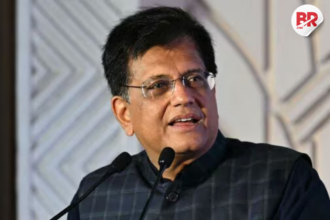
The recent terror attack in Pahalgam, which claimed innocent lives and shook the nation, has sparked anger and calls for immediate accountability.
Amidst the national outrage, Congress leader Shashi Tharoor made a controversial statement comparing India’s response to that of Israel’s in similar situations.

Tharoor’s argument draws a parallel between Israel’s approach of delaying full accountability during times of crisis and India’s current situation, where the focus, he suggests, should be on resolving the immediate threat before any blame game begins.
Tharoor’s Israel Comparison: What Was Said?
Tharoor’s comparison rests on the idea of deferring accountability in the midst of a national security crisis.
According to him, just as Israel tends to delay a full reckoning of its security failures until after an ongoing conflict is resolved, India too should prioritize addressing the present crisis rather than turning the spotlight on accountability right away.
He emphasizes the “no foolproof intelligence” element, which both India and Israel struggle with, suggesting that this is not the time for blame but rather for uniting in the face of adversity.
#WATCH | Thiruvananthapuram, Kerala | On the Pahalgam terror attack, Congress MP Shashi Tharoor says, “Obviously, there was no full proof intelligence. There was some failure… But we have got the example of Israel, the world’s best intelligence services according to everybody,… pic.twitter.com/v0SMkULt6i
— ANI (@ANI) April 27, 2025
The Flaws in the Israel Parallel
While Tharoor’s point about prioritizing immediate action makes some sense, the comparison to Israel is deeply problematic. Here’s why:
1. Different Security Realities: Israel’s security threats are far more direct and existential, with the country constantly at odds with multiple hostile neighbors and militant groups. India’s security challenges, while serious, are primarily internal, such as the ongoing issue of terrorism sponsored by Pakistan and other cross-border elements. This difference in threat level complicates direct comparisons.
2. Human Rights Concerns: Israel’s controversial policies toward Palestinians have earned widespread international criticism. For India, drawing any comparison to Israel—especially during such a sensitive crisis—could lead to ethical questions regarding its stance on human rights. The optics can be tricky.
3. Domestic Politics: In India, the mention of Israel often invites polarized debates. Supporters of the ruling government may view this comparison favorably, while opposition groups might see it as an endorsement of controversial policies. For a country that is still navigating the post-Partition trauma with Pakistan, this is a particularly sensitive issue.
#WATCH | Thiruvananthapuram, Kerala | On Pahalgam terror attack, Congress MP Shashi Tharoor says, “This is part of a long pattern we have seen for almost a quarter of a century… People are encouraged, trained, armed, and often guided from across the border. Then Pakistan denies… pic.twitter.com/4UIUpIDVks
— ANI (@ANI) April 27, 2025
Why Tharoor’s Approach Might Have Merit
Despite the comparison’s flaws, there is a pragmatic side to Tharoor’s argument. In times of crisis, the nation’s focus should be on providing immediate relief, securing the safety of citizens, and managing the situation on the ground.
1. A Crisis Demands Focus: Diverting critical resources to an investigation could detract from the urgent task of protecting citizens and responding to the attack. India needs to focus on stabilizing the situation, not on assigning blame before all the facts are clear.
2. Avoiding Hasty Conclusions: In the heat of the moment, investigations can be rushed, leading to premature conclusions and unfair scapegoating. A thorough investigation after the crisis subsides ensures that decisions are made based on a complete picture.
3. Maintaining Morale: During national emergencies, security forces and frontline responders need to stay focused on the job. Premature blame can undermine their morale, distracting them from their duties when unity and focus are needed most.
Also Read India Takes Control: Why Blocking Pakistani YouTube Channels Was a Bold, Smart Move
Why Accountability Cannot Wait
On the flip side, postponing accountability can have dangerous consequences:
1. Loss of Evidence: As time passes, crucial evidence may be lost, and key eyewitness testimonies could fade. Delaying the investigation could make it harder to piece together the truth.
2. Erosion of Trust: If the government delays accountability, it risks being seen as trying to cover up its failures. This could lead to widespread distrust in authorities, weakening the fabric of the nation’s democracy.
3. Risk of Recurrence: Without immediate action, the underlying flaws that led to the attack may not be addressed. This could result in similar tragedies happening again in the future.
A Fine Balance Between Action and Accountability
The heart of the debate surrounding Tharoor’s statement lies in balancing the urgency of immediate action with the need for long-term accountability. While his Israel comparison may have ruffled feathers, it does raise a valid question: How do we, as a nation, respond to crises?
Is it wiser to focus on the immediate threat or to ensure that every action, failure, and mistake is accounted for right away?
For now, what India needs most is an unwavering focus on solving the crisis at hand—putting the security of the people first while ensuring that, once the dust settles, accountability is not an afterthought.
Also Read Pakistan ‘Acted Like ISIS’ in Pahalgam — Owaisi’s Brutal Truth Lands Hard












